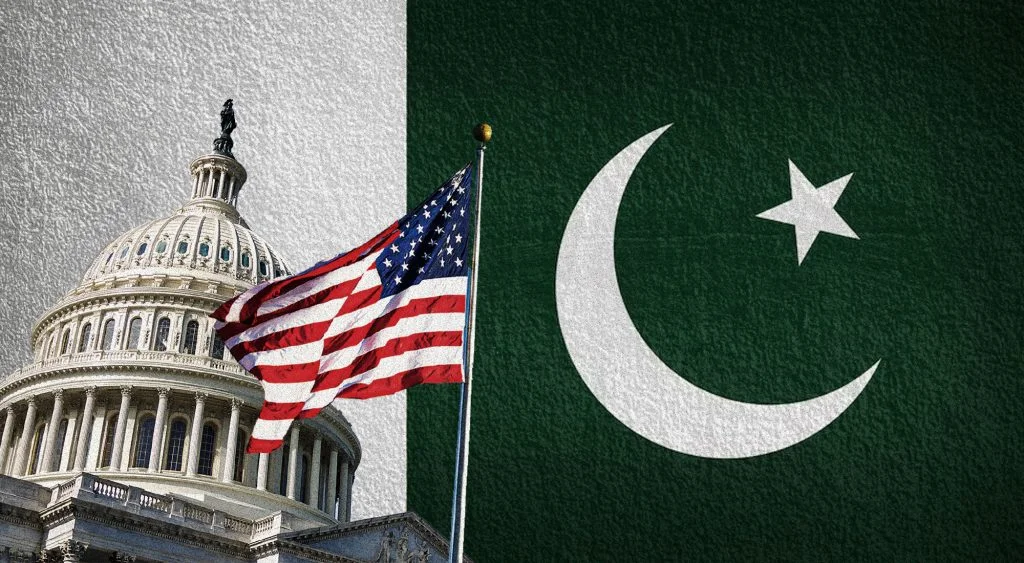The recent US-Pakistan counterterrorism dialogue held on 12 August 2025 marked a significant reaffirmation of the longstanding partnership between the two nations to fight terrorism in all its forms. This renewed collaboration comes amid rising terrorism incidents in Pakistan and evolving regional security dynamics, highlighting the need for joint efforts for regional and global stability.
Focus on Operational Cooperation and Emerging Threats
Pakistan and the United States have taken a decisive step to strengthen their joint combat against terrorism, with a recent dialogue focusing on increasing operational cooperation against militant groups. Co-led by Pakistan’s Special Secretary for the United Nations, Nabeel Munir, and U.S. Acting Coordinator for Counterterrorism Gregory D. LoGerfo, the discussions addressed threats from the Balochistan Liberation Army (BLA), ISIS-Khorasan, and the Tehreek-e-Taliban Pakistan (TTP). Both delegations, focused on the urgency of addressing threats posed by these groups, which have been responsible for numerous deadly attacks in Pakistan over recent years. The discussions also emphasized the need to strengthen institutional frameworks, boost security capacities, and counter the misuse of emerging technologies by terrorist networks. The dialogue reaffirmed both countries’ commitment to cooperation within multilateral platforms such as the United Nations to develop effective and enduring counterterrorism strategies.
Pakistan’s Counterterrorism Challenges and Strategic Response
This renewed cooperation is based on a recent history of aggressive counterterrorism efforts and incidents that have shaped Pakistani and U.S. security policies. Pakistan was among the countries with the most terrorism-related deaths in 2024, particularly in the volatile Khyber Pakhtunkhwa province and border areas adjacent to Afghanistan. The Tehreek-e-Taliban Pakistan (TTP) was recognized as the fastest-growing terrorist group in 2024, with deaths increasing by 90%. These attacks represent a troubling continuation of violence. Groups once tolerated as part of Pakistan’s regional strategies have increasingly turned against the state, resulting in major counterinsurgency operations like “Operation Azm-e-Istehkam,” launched in June 2024 to combine military action with socioeconomic initiatives aimed at deterring extremism.
US-Pakistan have increasingly aligned on counterterrorism efforts in recent years, building on dialogues from May 2024 and earlier. The U.S. has consistently praised Pakistan as a “phenomenal partner” in fighting terrorism, especially against insurgent groups like IS-Khorasan operating in Balochistan and other regions. The recent designation of the BLA and its alias, the Majeed Brigade, to the U.S. Foreign Terrorist Organization list further underscores this commitment. High-level meetings between military and political leaders from both countries, including visits by Pakistan’s Chief of Army Staff and the U.S. Secretary of State, have contributed to stronger ties. These diplomatic and strategic engagements have sought to create a balanced approach, recognizing Pakistan’s sacrifices and efforts while addressing international concerns over terrorist safe havens on its soil.
Regional and Global Implications of Strengthened Cooperation
The impacts of this increased collaboration have both regional and global dimensions. Strengthening Pakistan’s counterterrorism institutions and operational capabilities facilitates more effective disruption of terrorist networks that threaten neighboring Afghanistan, India, and beyond. It also aims to shield Pakistan’s civilians, who have suffered severely in attacks such as the Jaffar Express bombing (BLA claimed responsibility for the Jaffar Express attack in March 2025, which killed 31 people) and a deadly school bus attack in Khuzdar. Increased U.S. training of Pakistani police and frontline responders, over 300 trained since early 2023, alongside the sharing of best practices and border security infrastructure support, contribute substantially to these efforts.
Looking forward, the US-Pakistan counterterrorism dialogue opens possibilities for further cooperation on emerging threats, particularly in combating violent extremism facilitated by new technologies and evolving tactics. It also provides a model for broader regional cooperation to counter transnational terrorism problems, potentially promoting stability in a historically volatile area. The dialogue’s focus on multilateral engagement through platforms like the U.N. and the Global Counterterrorism Forum underscores a recognition that terrorism is a shared global challenge requiring unified responses.
In conclusion, the 2025 US-Pakistan counterterrorism dialogue reflects a vital and evolving partnership aimed at safeguarding regional and international security against persistent and emerging terrorist threats. Grounded in recent operational realities and strategic dialogues, it offers a comprehensive framework for boosting counterterrorism capacity, institutional resilience, and cooperative engagement amid continuing security challenges in Pakistan and the wider region.
Also Read: Pakistan’s Strategic Diplomacy: Unleashing Unstoppable Regional Influence ’25


